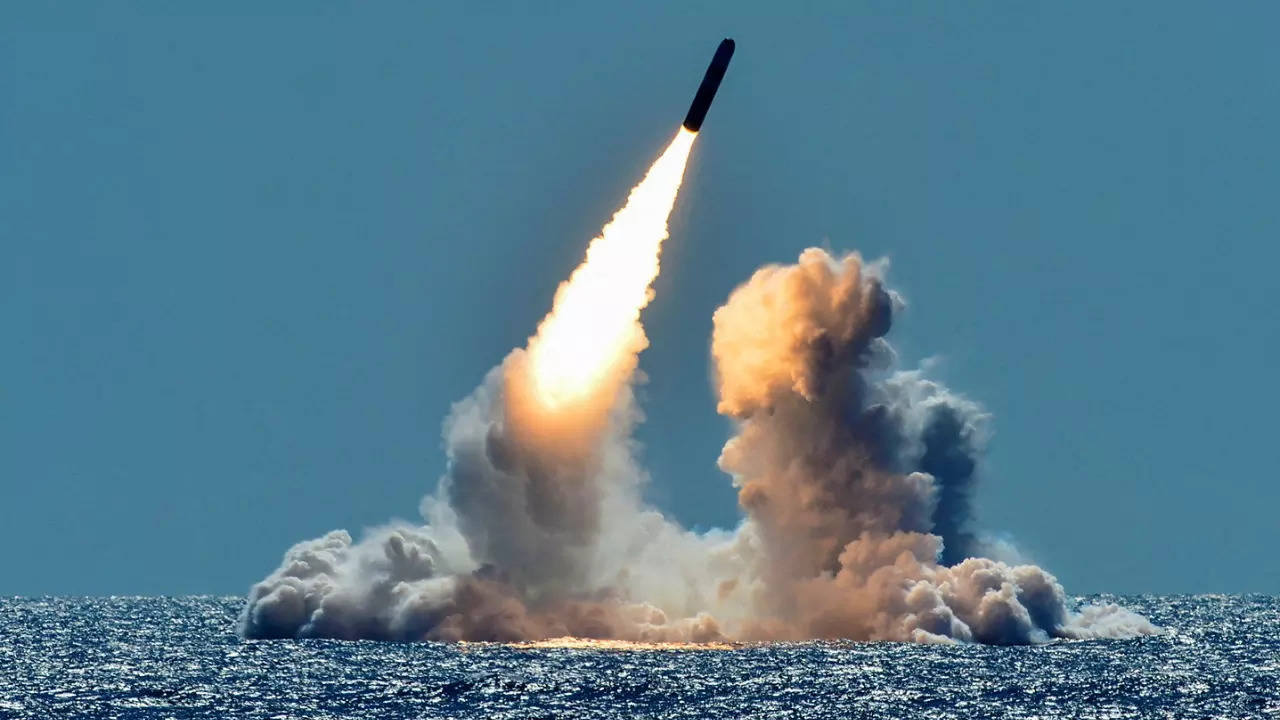China is aggressively advocating for a global commitment to a ‘no first use’ (NFU) nuclear policy, even as it rapidly expands its own nuclear arsenal. The proposal aims to counter criticism of China’s growing military capabilities and assert a moral high ground in global arms control discussions, according to Financial Times.
Proposal and criticism
At the UN Security Council in Geneva, China proposed a treaty or declaration for all permanent members to commit to a NFU policy.This policy dictates that a country would only use nuclear weapons if attacked by another nuclear power. China has also condemned the US for its nuclear deterrence strategies, accusing Washington of violating the Nuclear Non-Proliferation Treaty (NPT) with its nuclear sharing arrangements and nuclear umbrella over allies.
Rapid nuclear build-up
Beijing’s call for NFU is viewed by many as a strategic move to deflect criticism of its own extensive nuclear expansion. The Pentagon estimates China’s nuclear arsenal will exceed 1,000 warheads by 2030, a dramatic increase from current numbers. China has been constructing missile silos and increasing its fleet of nuclear-capable submarines, enhancing its ability to launch a nuclear strike on short notice.
International skepticism and global reactions
The US and its allies have expressed scepticism about China’s NFU proposal. Washington questions the sincerity of the initiative given China’s rapid and opaque arms build-up. A State Department spokesperson criticised China’s attempt to shift focus from its refusal to engage in meaningful arms control discussions.
Lyle Morris from the Asia society policy institute pointed out that the US is unlikely to support China’s proposal due to the need for flexible nuclear response options. Similarly, the UK and France, with their relatively weaker conventional forces, view the ability to respond with nuclear weapons as crucial.
Russia’s response has been cautious, suggesting any NFU agreement would need to be considered alongside broader military and strategic factors. Moscow’s doctrine allows nuclear first use in scenarios threatening state security, and recent statements hint at potential nuclear threats in the Ukraine conflict.
Despite these challenges, China’s push for NFU is resonating with many countries concerned about nuclear threats from Russia and North Korea. David Santoro of the Pacific forum noted that while global attention is on Russia and North Korea, China’s diplomatic efforts are making headway, allowing it to expand its arsenal with less backlash and controversy, as per Financial Times.
Proposal and criticism
At the UN Security Council in Geneva, China proposed a treaty or declaration for all permanent members to commit to a NFU policy.This policy dictates that a country would only use nuclear weapons if attacked by another nuclear power. China has also condemned the US for its nuclear deterrence strategies, accusing Washington of violating the Nuclear Non-Proliferation Treaty (NPT) with its nuclear sharing arrangements and nuclear umbrella over allies.
Rapid nuclear build-up
Beijing’s call for NFU is viewed by many as a strategic move to deflect criticism of its own extensive nuclear expansion. The Pentagon estimates China’s nuclear arsenal will exceed 1,000 warheads by 2030, a dramatic increase from current numbers. China has been constructing missile silos and increasing its fleet of nuclear-capable submarines, enhancing its ability to launch a nuclear strike on short notice.
International skepticism and global reactions
The US and its allies have expressed scepticism about China’s NFU proposal. Washington questions the sincerity of the initiative given China’s rapid and opaque arms build-up. A State Department spokesperson criticised China’s attempt to shift focus from its refusal to engage in meaningful arms control discussions.
Lyle Morris from the Asia society policy institute pointed out that the US is unlikely to support China’s proposal due to the need for flexible nuclear response options. Similarly, the UK and France, with their relatively weaker conventional forces, view the ability to respond with nuclear weapons as crucial.
Russia’s response has been cautious, suggesting any NFU agreement would need to be considered alongside broader military and strategic factors. Moscow’s doctrine allows nuclear first use in scenarios threatening state security, and recent statements hint at potential nuclear threats in the Ukraine conflict.
Despite these challenges, China’s push for NFU is resonating with many countries concerned about nuclear threats from Russia and North Korea. David Santoro of the Pacific forum noted that while global attention is on Russia and North Korea, China’s diplomatic efforts are making headway, allowing it to expand its arsenal with less backlash and controversy, as per Financial Times.
Source : Times of India





